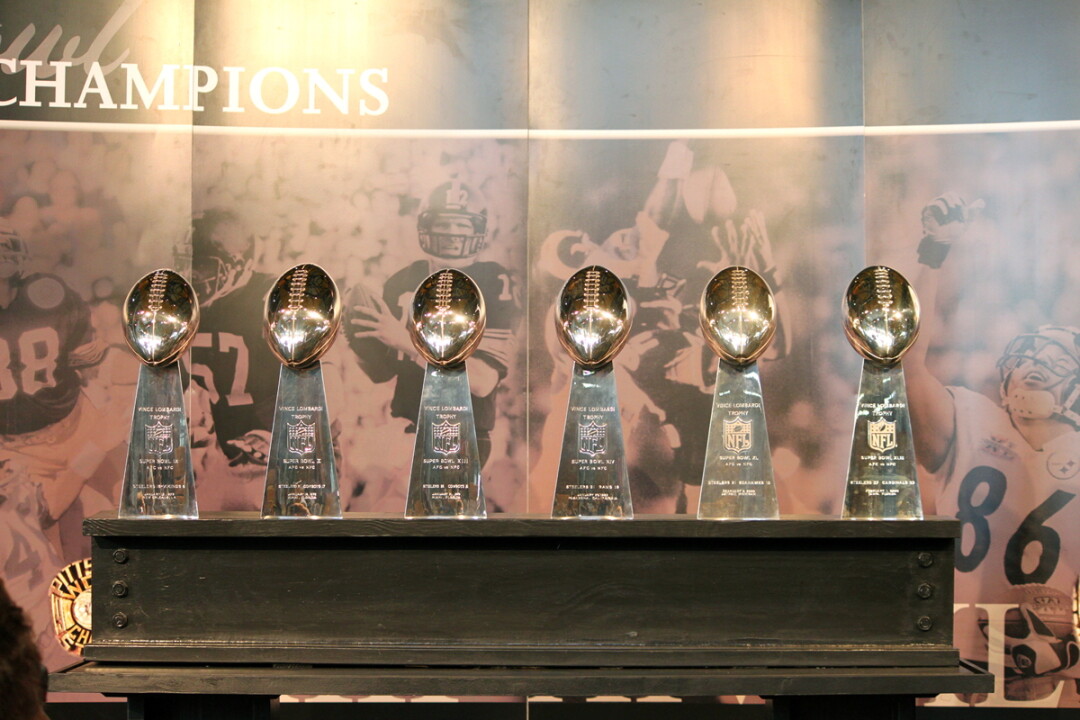In Pro Sports, Tallying Titles Can Be More Complicated Than It First Appears

Talking sports smack is not always an equal proposition. Consider the plight of yours truly, a Vikings fan and Wisconsin native. Any attempt to highlight why the Vikes may be, in some way, superior to the Packers can immediately be met with this stat: 13 championships to zero. It’s one of the ultimate sports smack trump cards, and until and unless the Vikings win one title, their fans must stand down.
Folks like me will then sometimes try a different approach. While the Brewers-Twins rivalry is really not the battle it was when both teams played in the American League, a Twins fan can point to two World Series trophies, while the Brewers still hold up their 1982 World Series loss as a franchise highlight. So there.
The counter of a Wisconsin fan: Milwaukee *did* win a World Series, courtesy of the now-Atlanta, then-Milwaukee Braves in 1957. So it’s not a shutout!
The counter-counter of a Minnesota fan: well, the Twins really have *three* titles, since they used to be the original Washington Senators, who won it all in 1924 (even if the Twins don’t really acknowledge their pre-Minnesota history). So, the lead is back to two. Maybe.
Of all subjects in history, sports history tends to have more tenuous definitions of certainty. Sports are played in different manners with different types of human beings in different generations; the biggest and strongest players in the 1940s NFL might not make today’s practice squads. Leagues expand, rules change, the culture evolves. As a result, what we witnessed on a field of play may no longer matter like it once did.
Consider the Packers’ 13 NFL championships. The modern NFL world dates back a half century, to the establishment of the Super Bowl and the merger of the AFL with the original NFL. Thus, the contemporary measure of excellence is winning the Super Bowl. Many football fans deride teams such as the Lions, Browns, and Cardinals for never even making the big game. Yet, all three won the NFL crown pre-Super Bowl – the same way the Packers won nine of their titles. Do those count less? What do we make of teams like the Chargers and Bills, pre-merger AFL title winners but lacking a Lombardi Trophy? They won it all … by an old definition.
At least those examples involve actual leagues with defined playoff systems. More nebulous is a city “owning” a team’s history. When the original Cleveland Browns moved to Baltimore in 1996, their records were wiped clean. The roster of players accompanying the old Browns to Baltimore suddenly had a new history. Meanwhile, the 1999 expansion replacement Browns adopted the old Browns’ records, playoff appearances, etc. – even though this was a completely different organization (albeit with the same name and colors).
A similar situation happened in Seattle, when the NBA SuperSonics moved to Oklahoma City in 2008, understanding that any future replacement would adopt the Sonics’ history. This could have impacted us in Wisconsin. Earlier this decade, when the Bucks were struggling to get funding for their new arena, talk built that someone could buy the franchise and move them to Seattle. Thus, the Bucks would become the SuperSonics and gain the Sonics’ background – including Seattle’s 1979 NBA championship. In the process, the Bucks’ entire Milwaukee past – including their 1971 NBA title – would presumably be mothballed for the unlikely event a team would move to Wisconsin. Sports history is subjective.
Then there is sports history you experienced, except you are told it never happened. Such is the case with the NCAA’s vacating of postseason appearances by schools with players later found to have been ineligible. This affected my Minnesota Golden Gophers’ 1997 Big Ten basketball title and Final Four appearance – all removed from the record books due to the academic scandal that engulfed the program. In the annals of the NCAA, none of that officially happened. I must have been on intense hallucinogens during the spring semester of my freshman year at college, since I have numerous memories of basketball games featuring the Gophers on national TV.
Vince Lombardi once relayed a classic quote that “winning isn’t everything, it’s the only thing.” Ironically for an industry defined by winners and losers, perhaps the only truth is that winning actually *can* be everything, to everyone. Except us Vikings fans.


















